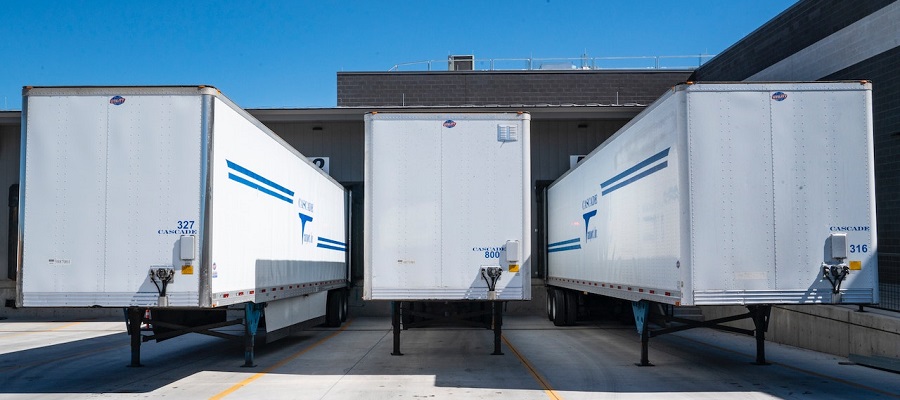Grocery wholesalers play a critical role in the distribution of food and other products to retail stores and other customers. In order to provide good service and meet the needs of their customers, it's important for grocery wholesalers to have a well-trained and knowledgeable workforce. In this article, we'll explore the various types of training and education programs that grocery wholesalers may offer for employees and customers.
Training Programs for Employees
Training programs for employees are an important consideration for grocery wholesalers. By providing training and education opportunities, grocery wholesalers can ensure that their employees have the skills and knowledge they need to perform their jobs effectively. In this article, we'll explore some of the key considerations for training programs for employees at grocery wholesalers.
"Types of Training Programs"
There are many different types of training programs that grocery wholesalers may offer for employees, depending on the needs of the business and the goals of the training. Some common types of training programs for employees at grocery wholesalers include:
- Customer service training: This type of training helps employees to understand how to effectively communicate with customers and provide excellent customer service.
- Product knowledge training: This type of training helps employees to become knowledgeable about the products offered by the grocery wholesale store, including features, benefits, and uses.
- Safety training: This type of training helps employees to understand how to work safely, including how to use equipment and handle hazardous materials.
- Sales training: This type of training helps employees to understand how to effectively sell products and services to customers.
"On-the-Job Training"
One way that grocery wholesalers may provide training for employees is through on-the-job training. This type of training involves employees learning skills and knowledge through hands-on experience, typically under the guidance of a more experienced employee or supervisor.
On-the-job training can be an effective way for employees to learn new skills, as it allows them to apply what they have learned in a real-work setting. It can also be a cost-effective way for grocery wholesalers to provide training, as it does not require the use of external trainers or materials.
"In-House Training Sessions"
Another way that grocery wholesalers may provide training for employees is through in-house training sessions. These sessions may be conducted by internal trainers or by external trainers who are brought in to deliver specific training programs.
In-house training sessions can be an effective way for grocery wholesalers to provide more comprehensive training programs that may not be feasible through on-the-job training alone. These sessions may be conducted in person or online, depending on the needs of the business and the availability of the trainers.
Education Programs for Customers
Education programs for customers are an important consideration for grocery wholesalers, as they can help to build trust and loyalty, and can differentiate the store from competitors. In this article, we'll explore some of the key considerations for education programs for customers at grocery wholesalers.
"Types of Education Programs"
There are many different types of education programs that grocery wholesalers may offer for customers, depending on the needs and interests of the customer base. Some common types of education programs for customers at grocery wholesalers include:
- Product knowledge programs: These programs are designed to help customers learn more about the products offered by the grocery wholesale store, including features, benefits, and uses.
- Food safety programs: These programs are designed to provide customers with information on topics such as food handling, storage, and preparation.
- Nutrition programs: These programs are designed to provide customers with information on topics such as healthy eating, meal planning, and food labels.
- Sustainability programs: These programs are designed to provide customers with information on topics such as environmental stewardship, waste reduction, and sustainable sourcing.
"In-Person Education Programs"
One way that grocery wholesalers may provide education programs for customers is through in-person programs. These programs may be conducted in the store, at a customer's location, or at a third-party location.
In-person education programs can be an effective way for grocery wholesalers to engage directly with customers and provide more personalized and interactive learning experiences. These programs may be conducted by internal trainers or by external trainers who are brought in to deliver specific education programs.
"Online Education Programs"
Another way that grocery wholesalers may provide education programs for customers is through online programs. These programs may be conducted through online courses or webinars, and may be accessed by customers through the store's website or other online platforms.
Online education programs can be a convenient and flexible option for customers, as they can be accessed from any location with an internet connection. These programs may be self-paced or may be delivered in real-time, depending on the needs of the customer.
"Printed Materials"
Grocery wholesalers may also provide education programs for customers through printed materials, such as brochures or newsletters. These materials may be provided in-store or mailed to customers, and may include information on a wide range of topics related to the store's products and services.
Printed materials can be a useful way for grocery wholesalers to provide information to customers in a format that is easy to refer back to and share with others. These materials may be produced in-house or by external vendors, depending on the needs of the business.
"Conclusion"
In conclusion, education programs for customers are an important consideration for grocery wholesalers. By providing education programs, grocery wholesalers can help to build trust and loyalty, and can differentiate themselves from competitors. By investing in education, grocery wholesalers can improve their competitive position.


